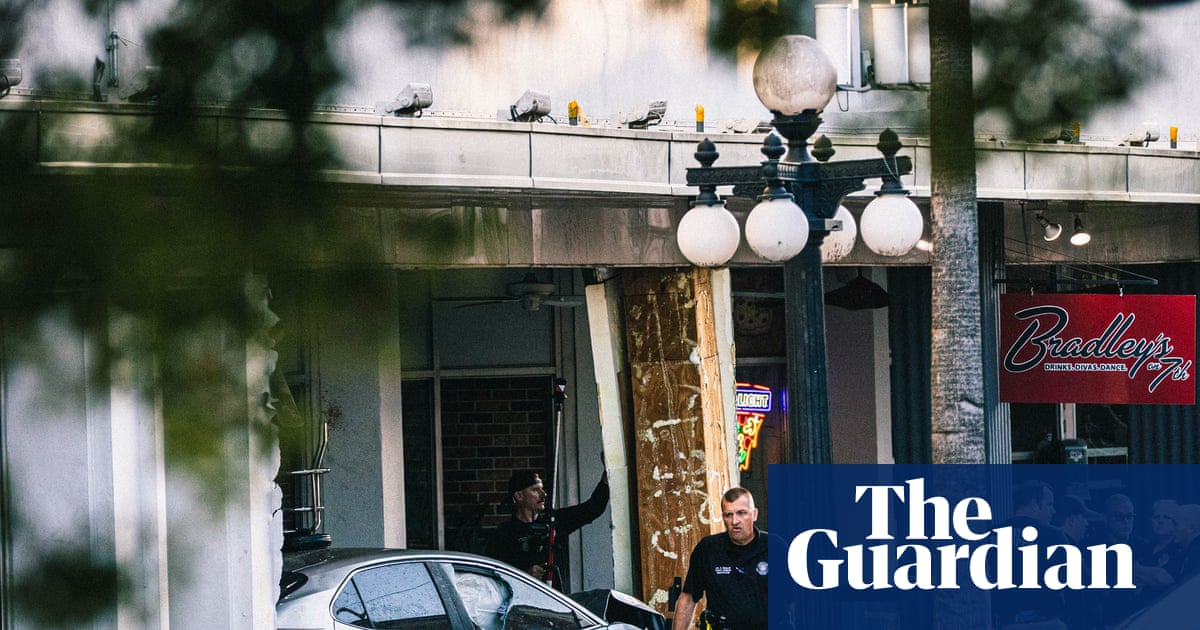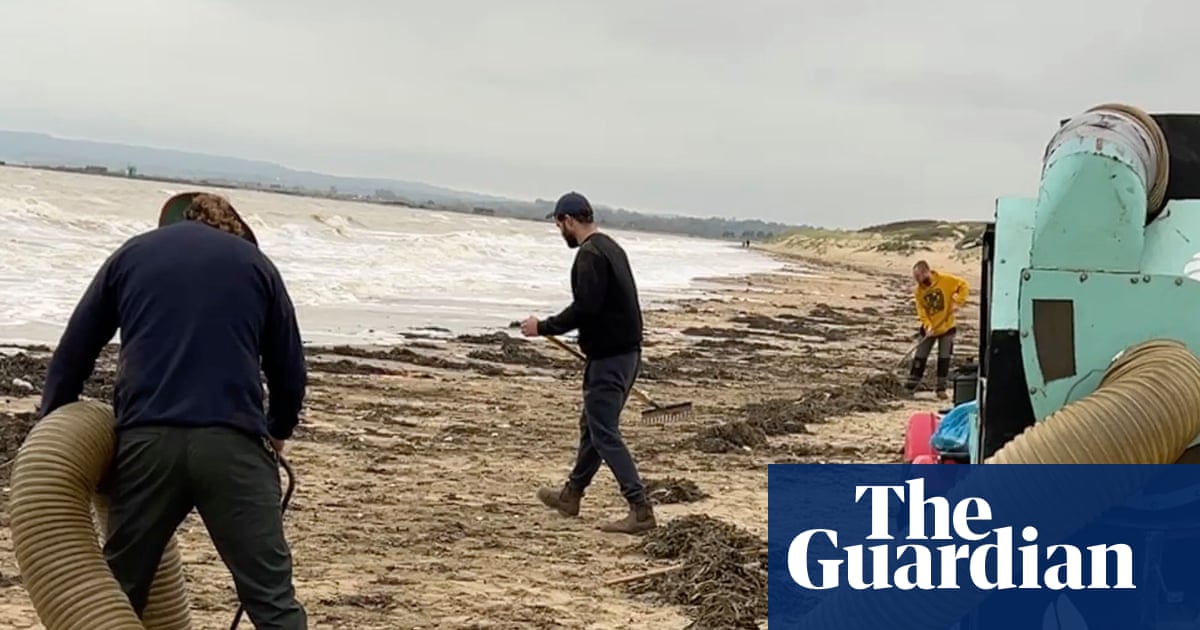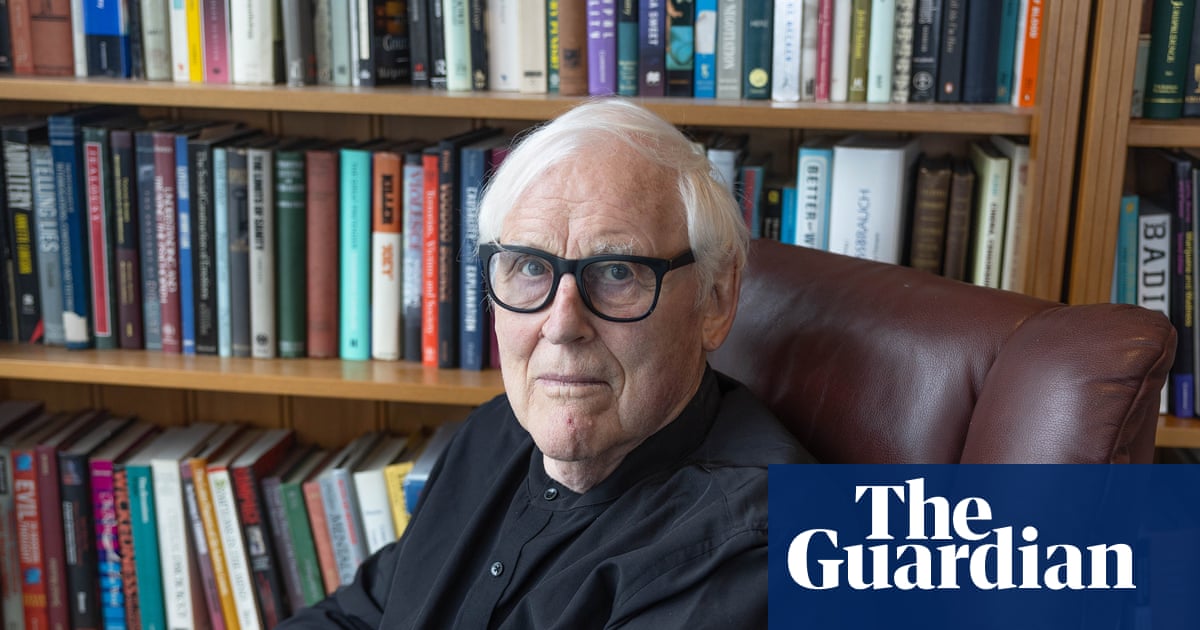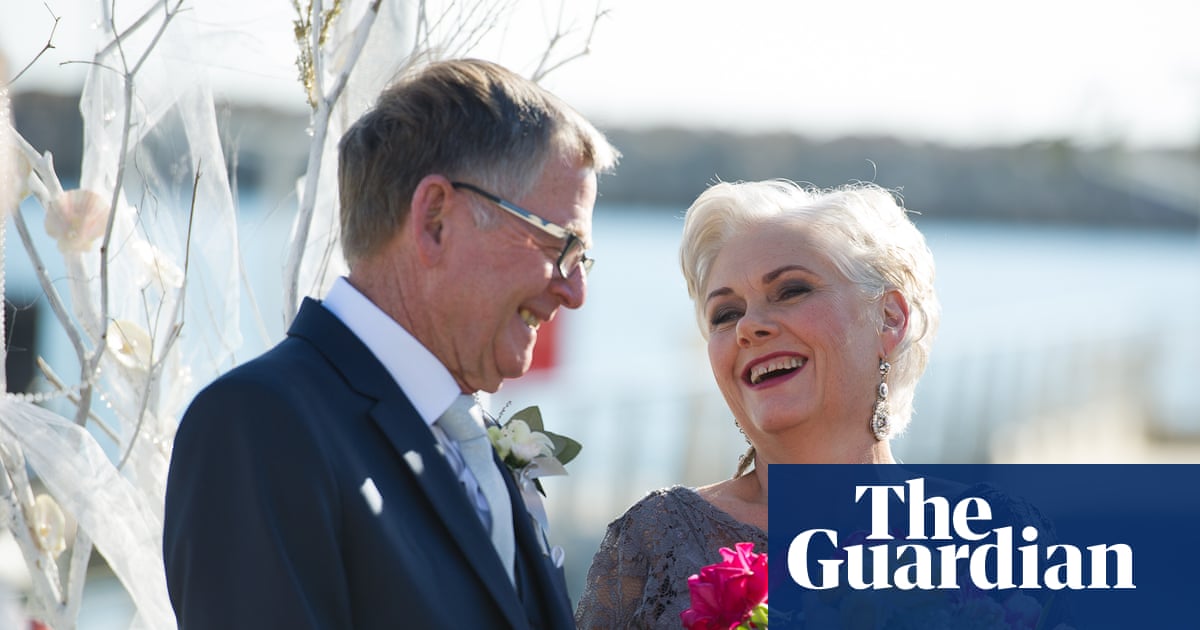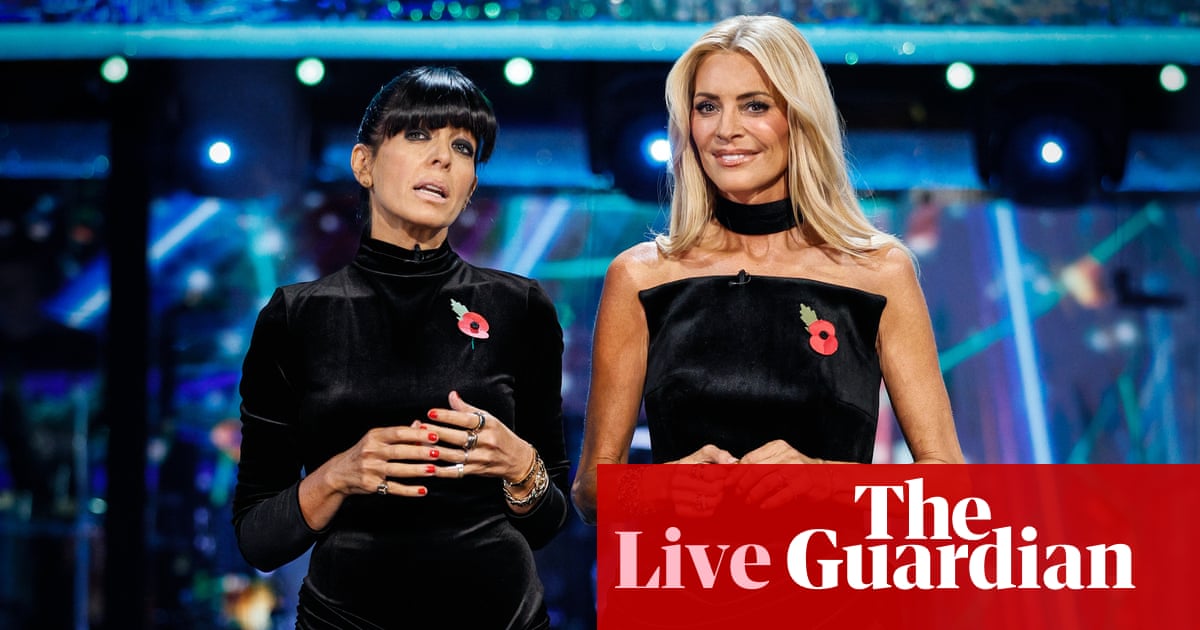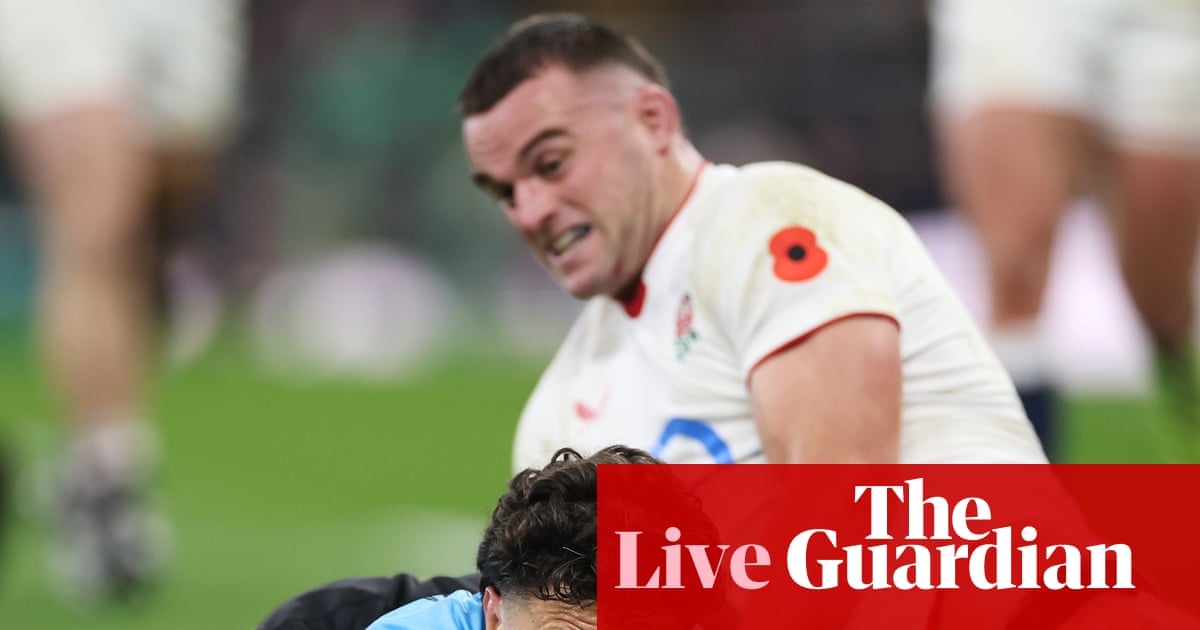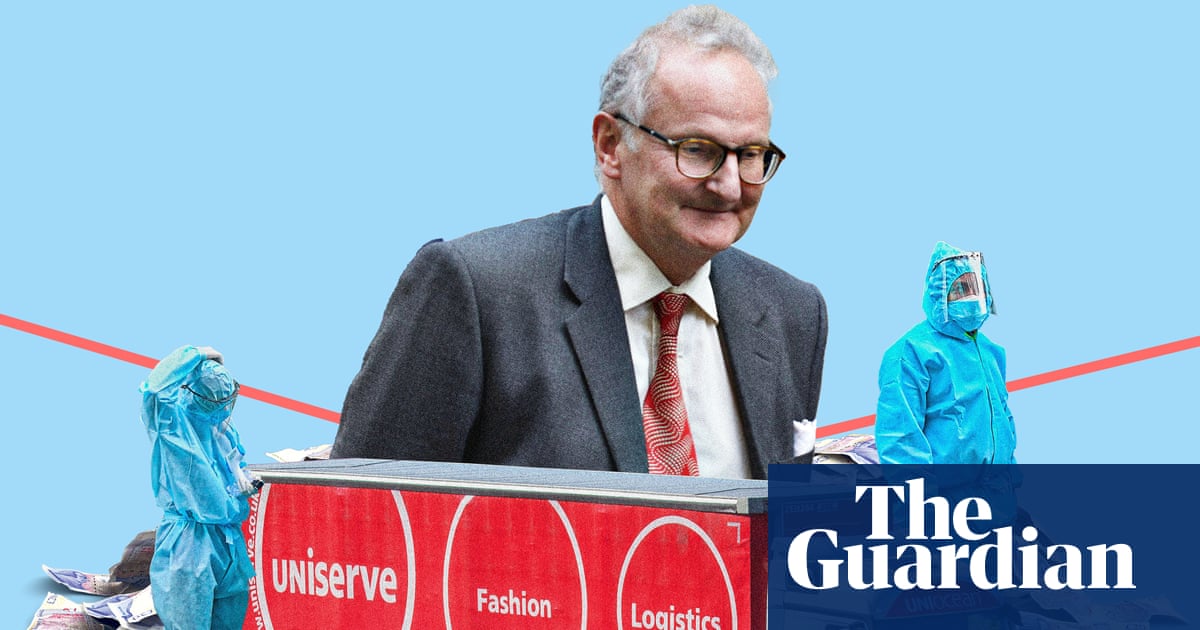Addra* insists that his aunt, Anyessi Dossou, does not have a story to tell. “She’s just an old woman who’s never left the village,” he says, as he guides us along dirt tracks in fading light to her home in Avlo, Benin.
When Dossou, in her early 80s, emerges from her room in the compound house she shares with generations of her extended family, the conversation begins hesitantly. “I told you,” Addra says.
Then the levees break. Asked about her husband, Dossou recounts the impact of being widowed at a young age and raising five children. She speaks of small joys and triumphs, and of the intense heartbreak of losing a son. She describes her life now as an older woman and the loneliness she feels in her bones. Dossou clearly has a story. “I’ve never heard her talk like that,” Addra concedes.
At 59, life expectancy of women in west Africa is the lowest of any female population in the world. In 2023, I started to chronicle a history of the region through the experiences of older women, largely overlooked in official narratives.
In 100 interviews with women over the age of 60 in villages and towns on the coasts of Benin, Togo, Sierra Leone and the Gambia, covering how they live, love, survive and thrive, there were many stories. The commonality was in almost all having defied stereotypes, not just in terms of age but in breaking social and cultural barriers.
These are women who are farmers and traders, teachers and seamstresses, businesswomen, mothers, trade unionists and community leaders.
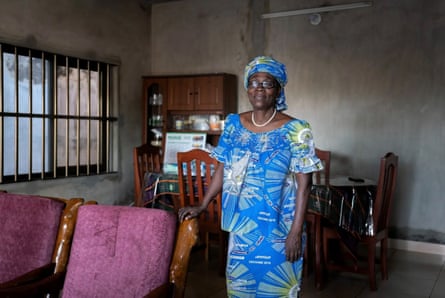
Marie-Thérèse Fakambi, 70, Benin: a midwife
As one of eight siblings from her father’s four wives, Marie-Thérèse Fakambi was her mother’s only child. She enjoyed a bucolic childhood in a large polygamous household in western Benin. Under her mother’s guidance, she left for the commercial capital, Cotonou, to study midwifery, and graduated three years later.
“When I started, on 25 January 1980, the place where I was assigned had no electricity. We worked using a small oil lamp called a luciole during deliveries and even to stitch women up when there were tears.”
Although she has never married or had any children of her own, Fakambi sees herself as a mother to the 5,000 children she delivered throughout her 18-year career, many of whom she still knows and who now have children of their own.
Of her own mother, she says: “She cried all the time until she died. The fact that she didn’t have any more children, and that I didn’t have any, hurt her.”
Fakambi saw things differently. “At one point, I told myself, ‘Well, no, you don’t have to have children.’ My sister has children, my brother has children, and they treat me well. So what’s the problem?”
Now retired, Fakambi is able to indulge her other passion: organising traditional marriage ceremonies, known as dots. She takes pride in bringing together young couples embarking on marital life. “I love it!” she says. “Since I started, I’ve done about 18. It brings me great joy.”
During the Covid-19 pandemic, two of her brothers died in quick succession, Fakambi was appointed head of her extended family, a position traditionally held by men. “People have developed a certain trust in me, which allows me to lead them, but men are difficult, and it’s not easy.
“Everyone has their gift,” she says. “This is mine.”
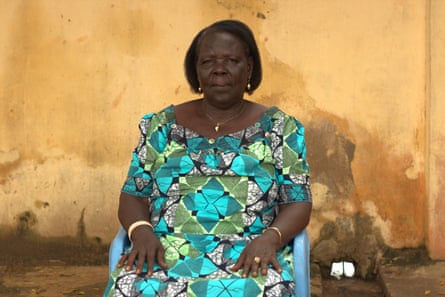
Méwounèsso Tchetike, 74, Togo: a woman who broke the cycle of child marriage
As a child in Koumaye, Togo, Méwounèsso Tchetike had her life mapped out for her. Born into a farming family, as the fourth of five children, she would help on the land as soon as she could walk, assist her mother in selling the produce at market, and be initiated into womanhood at about 13 before being married off and having her own children, repeating the cycle of generations of women before her.
Despite a significant decline in child marriages over the past 30 years, one in four girls in Togo become wives before the age of 18. Kara, Tchetike’s home region, has the second-highest rate of child marriage in the tiny country.
Tchetike’s father betrothed her to the son of a neighbour before she was born. The price was a dowry of grains to be paid annually until Tchetike was ready to be given over to her husband’s family. When that time came, although Tchetike had reservations, she could not go against her father’s will.
“It would bring shame on my family,” Tchetike says. “Everyone in the village would ostracise us and accuse us of stealing our neighbour’s grain over the years.”
Six decades later, and now living in the capital, Lomé, Tchetike is still married to the man she was pledged to; his “senior wife”. But now 70 and a mother to five, including two girls, she will not be repeating the patterns of the past.
When asked if she would ever arrange a marriage for her daughters, Tchetike breaks into a throaty laugh. “Never! Never, never, never! They wouldn’t stand for it, and I’d never do it.
“Let them choose their own husbands,” she adds. “I don’t want any trouble.”
after newsletter promotion
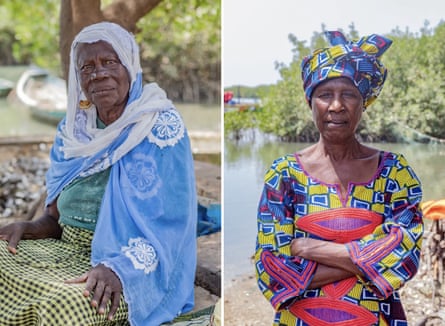
Isatou Jarju, early 80s, and Isatou Madeline Jarju, 69, the Gambia: women who rule the river
“Around this creek, from where we are standing to the other end,” Isatou Jarju says, pointing across the Hallahin River, “there is no one who can beat me when it comes to oyster farming.”
She does not know her exact age – Jarju says she was “crawling when the Burma war started”, which would put her in her early 80s – but she knows: “Around this creek, there is no one who can swim better than me.”
Fishing is traditionally done by men, but women run the physically demanding oyster trade in Kartong, in the Gambia’s south, from harvesting in mangroves to processing and selling.
Jarju has been exerting her authority for decades, training young people in how to navigate the river and teaching them methods that have been handed down over generations. “I educated my children from this creek. I had 12; one is a doctor. Each one has something to hold on to after graduating.”
Several years ago, Jarju delegated leadership to her younger sister, Isatou Madeline Jarju, president of the 200-member Women’s Oyster Association. “I didn’t go through formal education, but Isatou did. I told her, ‘You are going to be our clerk, and you will be our go-to person whenever we are in need of support.’”
Isatou Madeline Jarju has travelled across Africa and Europe, learning about and teaching oyster farming and securing funds to develop the village, including the installation of toilets.
A divorced mother of five, she fosters local children at risk of abandonment. “In my home, I’m the husband,” she says. “I do what a man should do. Nowadays, it’s difficult to feed the children, but I’m happy because I’m in nature and working with the women.”
“Don’t talk about men,” the older sister says when asked about the role men have played in Kartong’s development.
“Men are just a hindrance,” she says. “They are the definition of driving a vehicle backwards. When I stand here, they will all say that the owner of the creek is back. That is who I am.”
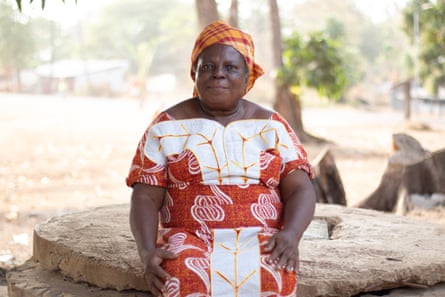
Yetunde Adwoa Sillah Beckley, 73, Sierra Leone: a woman rebuilding history
Yetunde Adwoa Sillah Beckley’s life is rooted in remembrance. Born in Ghana to a Nigerian mother and a Ghanaian father, whose ancestries can be traced back to Sierra Leone, she is a proud Creole, a descendant of freed enslaved people from the Americas who established the capital, Freetown, in 1792. “My people were pioneers,” Beckley says. “Everything I do is in their memory.”
Based in the village of Kent on the Freetown peninsula, in the house her great-great-great-grandparents built, Beckley felt compelled to expand on their legacy. Notable within the community for the well they dug on their land, which supplied the purest water in the area, it sustained generations of her family and many others.
During Sierra Leone’s civil war, which lasted from 1991 to 2002, the well was destroyed and Beckley fled to Freetown. But on her return she committed to rebuilding her ancestors’ well. “I wanted to do something that would last,” she says. “It took some time, but I’m happy I was able to do it.”
Beckley’s daughter, who is in her 40s, also lives on the family land with her own children. She helps her mother run the small community grocery shop at the front of the main house, which sells oil and fresh produce. She has plans to complete an outbuilding her grandparents started before she was born, which has fallen into disrepair.
Meanwhile, Beckley’s dream is to return to Ghana to reconnect with her relatives, whom she lost touch with during the war. “I’m west African,” she says. “My people are everywhere.”
* Addra did not give his first name
-
This project was supported by the National Geographic Society. A Women’s Oral History of West Africa is a five-part podcast series that tells an alternative history of postcolonial west Africa through the lives of women over 60, in their own words. It is available on awomensoralhistory.africa

 3 months ago
104
3 months ago
104



